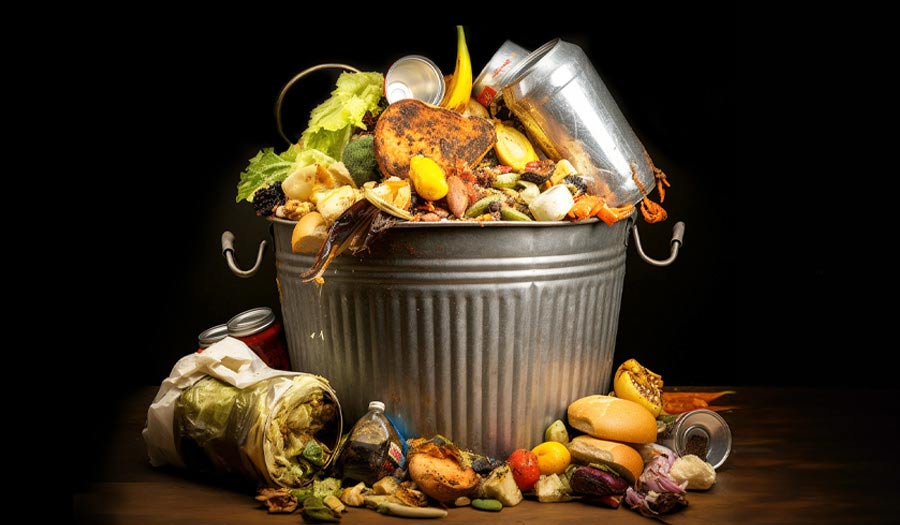 AP/Charlie Neibergall
AP/Charlie Neibergall
World News Desk
Learn the why behind the headlines.
Subscribe to the Real Truth for FREE news and analysis.
Subscribe NowNAIROBI, Kenya (AP) – The world wasted an estimated 19 percent of the food produced globally in 2022, or about 1.05 billion metric tons, according to a new United Nations report.
The UN Environment Programme’s Food Waste Index Report, published Wednesday, tracks the progress of countries to halve food waste by 2030.
The UN said the number of countries reporting for the index nearly doubled from the first report in 2021. The 2021 report estimated that 17 percent of the food produced globally in 2019, or 931 million metric tons (1.03 billion tons), was wasted, but authors warned against direct comparisons because of the lack of sufficient data from many countries.
The report is co-authored by UNEP and Waste and Resources Action Programme (WRAP), an international charity.
Researchers analyzed country data on households, food service and retailers. They found that each person wastes about 79 kilograms (about 174 pounds) of food annually, equal to at least 1 billion meals wasted worldwide daily.
Most of the waste—60 percent—came in households. About 28 percent came from food service, or restaurants, with about 12 percent from retailers.
“It is a travesty,” said co-author Clementine O’Connor, the focal point for food waste at UNEP. “It doesn’t make any sense, and it is a complicated problem, but through collaboration and systemic action, it is one that can be tackled.”
The report comes at a time when 783 million people around the world face chronic hunger and many places face deepening food crises. The Israel-Hamas war and violence in Haiti have worsened the crisis, with experts saying that famine is imminent in northern Gaza and approaching in Haiti.
Food waste is also a global concern because of the environmental toll of production, including the land and water required to raise crops and animals.
Fadila Jumare, a Nigeria-based project associate at Busara Center for Behavioral Economics who has studied prevention of food waste in Kenya and Nigeria, said the problem further disadvantages many people who are already food insecure and cannot afford healthy diets.
“For humanity, food waste means that less food is available to the poorest population,” said Ms. Jumare, who was not involved in the report.
Brian Roe, a food waste researcher at Ohio State University who was not involved with the report, said the index is important to tackling food waste.
“The key takeaway is that reducing the amount of food that is wasted is an avenue that can lead to many desirable outcomes—resource conservation, fewer environmental damages, greater food security, and more land for uses other than as landfills and food production,” said Mr. Roe.
The report showed notable growth in coverage of food waste in low- and middle-income countries, the authors said. But it may fall to wealthier nations to lead in international cooperation and policy development to reduce food waste, they said.
The report said many governments, regional and industry groups are using public-private partnerships to reduce food waste and its contributions to climate and water stress. Governments and municipalities collaborate with businesses in the food supply chain, whereby businesses commit to measure food waste.
The report said food redistribution—including donating surplus food to food banks and charities—is significant in tackling food waste among retailers.
The report’s authors said they found that the differences in per capita household food waste between high-income and lower-income countries were surprisingly small.
Richard Swannel, a co-author and director of Impact Growth at WRAP, said that shows food waste “is not a rich world problem. It’s a global problem.”
“The data is really clear on this point: that here is a problem right around the world and one that we could all tackle tomorrow to save ourselves money and reduce environmental impact,” he said.
- Real Truth Magazine Articles
- AMERICAS
 Feast and Famine in America
Feast and Famine in America
More on Related Topics:
- Pakistan Is in ‘Open War’ with Afghanistan After Latest Strikes, Defense Minister Says
- U.S. Military Builds Up the Largest Force of Warships and Aircraft in the Middle East in Decades
- As U.S. Block of Oil Supply Deepens Energy Crisis, Cubans Ask: What More Can We Sacrifice?
- Egypt’s Drone Deployment to Border Raises Stakes in Sudan’s Civil War
- Atomic Scientists Set ‘Doomsday Clock’ Closer to Midnight Than Ever


